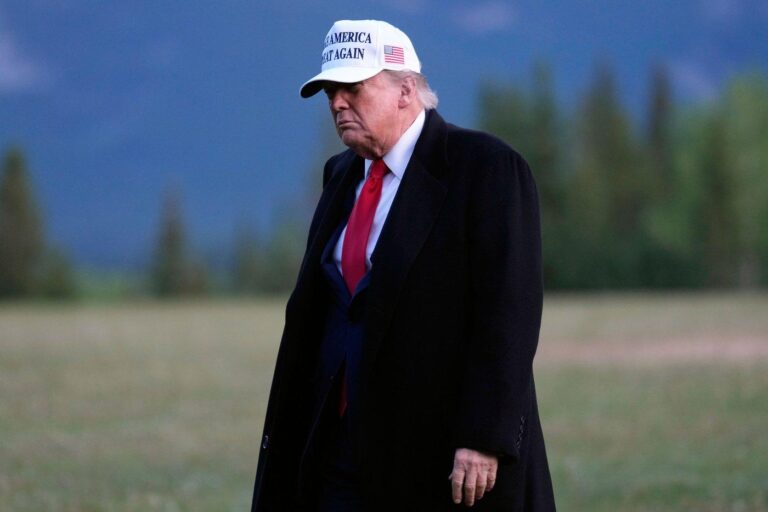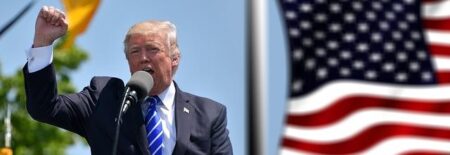At the recent G7 summit, former U.S. President Donald Trump suggested a potential shift in the United States’ approach to sanctions on Russia, hinting that there may be no further penalties imposed. This statement marks a notable departure from the current administration’s hardline stance amid ongoing tensions over the conflict in Ukraine. As world leaders convened to discuss global security and economic challenges, Trump’s remarks sparked renewed debate over the future of Western policy toward Moscow.
Trump Signals Potential Shift in US Sanctions Policy Towards Russia at G7 Summit
At the recent G7 summit, former President Donald Trump made headlines by suggesting a possible departure from the existing US sanctions regime on Russia. His remarks hinted at a future where Washington might ease or altogether halt the imposition of further sanctions, signaling a significant pivot in the approach towards Moscow. This stance contrasts sharply with the current administration’s firm policy and has quickly sparked debate among global policymakers, analysts, and economic stakeholders.
- Trump emphasized the need for improved US-Russia relations and warned that continued sanctions could be counterproductive.
- He argued that dialogue and cooperation, rather than punitive measures, are essential for global stability.
- Critics worry that easing sanctions could embolden Russia and undermine Western unity.
- Supporters believe that a shift might open channels for diplomacy and economic engagement.
| Aspect | Current Policy | Potential Trump Shift |
|---|---|---|
| Sanctions | Strict and expanding | Freeze or rollback |
| Diplomacy | Limited engagement | Increased dialogue |
| Alliance Unity | Strong cooperation | Uncertain alignment |
Implications for Western Unity and Global Geopolitical Dynamics
The suggestion of halting further US sanctions on Russia has sent shockwaves throughout Western alliances, potentially unraveling years of coordinated economic pressure aimed at curbing Moscow’s geopolitical ambitions. This apparent policy pivot risks deepening rifts within the G7 and NATO, where consensus on Russia remains one of the few unifying factors. Several member states have already voiced concerns that relaxing sanctions prematurely could embolden Russian aggression and undermine collective security frameworks established post-2014 and reinforced after 2022.
Moreover, this development signals a profound shift in the global geopolitical playing field, compelling other nations to reassess their stances. Emerging economies and regional powers may perceive the easing of sanctions as a green light to recalibrate alliances away from Western-led paradigms. Key implications include:
- Fragmentation of Western consensus, with potential splintering in policy coordination against authoritarian regimes.
- Strengthened leverage for Russia in negotiating energy deals and military partnerships, particularly in Eurasia and the Middle East.
- Encouragement of multipolarity, as countries explore alternative power centers beyond the US-led West.
| Aspect | Potential Outcome | |||||||||||||||
|---|---|---|---|---|---|---|---|---|---|---|---|---|---|---|---|---|
| Western Unity | Erosion of unified sanctions regime | |||||||||||||||
| Geopolitical Influence | Shift towards a more multipolar world order | |||||||||||||||
| Energy Markets | Enhanced Russian energy leverage in Europe and Asia |
| Element | Purpose | Expected Outcome |
|---|---|---|
| Adaptive Sanctions | Respond dynamically to international developments | Maintain leverage while opening pathways for dialogue |
| Multilateral Cooperation | Unify policy and enforcement among allies | Increase pressure effectiveness and legitimacy |
| Communication Channels | Enable confidential dialogue | Reduce risks of escalation and misunderstandings |
| Conflict De-escalation | Prevent inadvertent conflicts from diplomatic tensions | Preserve stability during negotiations |
To Conclude
As the G7 summit concludes, former President Donald Trump’s remarks signaling a potential halt to further U.S. sanctions on Russia introduce a new dynamic to the ongoing geopolitical discourse. While official U.S. policy remains unchanged for now, Trump’s comments are likely to influence both domestic debates and international diplomatic calculations. Observers will be watching closely to see if these hints translate into concrete policy shifts in the coming months.




